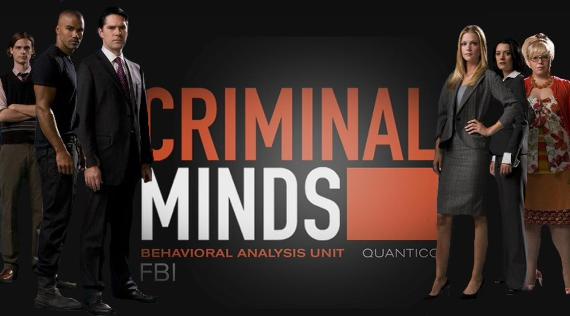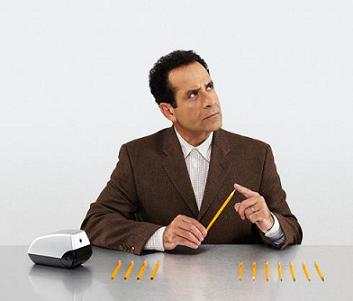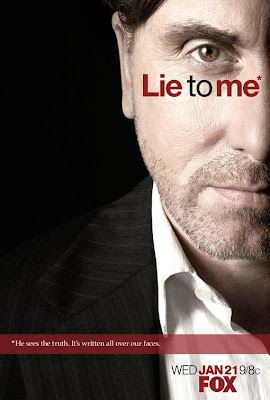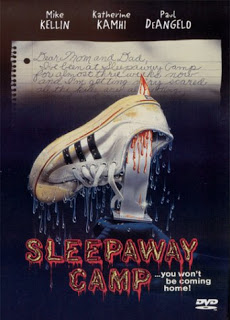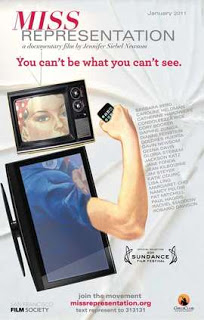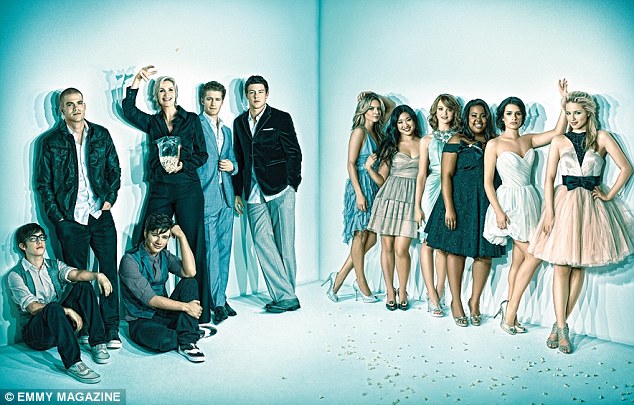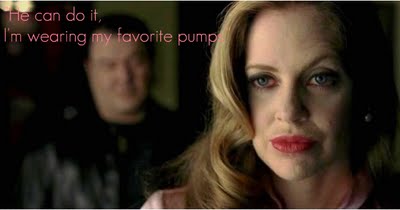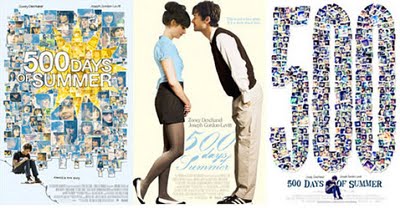When we look closely at the numbers of women portrayed as professionals in these shows and the number of women actually working in these professions, it is clear that feminism is embedded in dramas like Criminal Minds. In 2009 Kimberly DeTardo-Bora published the results of a study in which she conducted a feminist content analysis of popular prime-time crime dramas from January 2007 through May 2007. The details of her study are fascinating, and I encourage you to read the rest of her article in the journal Women & Criminal Justice. In order to capture the wide variety of professions depicted in crime dramas, researchers looked at the “criminal justice” field, which included police, lawyers, judges, federal agents, etc. What the study found was that among the main characters in their sample of crime dramas, 54.9% were male, and 40.6% were female. In addition to the nearly equal numbers of men and women, women appeared to work in the same types of positions as men; they were just as likely to be prosecutors, or criminal investigators. While in prime-time dramas women appear to have achieved near equality with men in the criminal justice fields, as DeTardo-Bora points out, the reality is slightly different: “According to the Bureau of Labor Statistics (2006), 26% of criminal investigators and detectives [were] female. In [De-Tardo-Bardo’s] study, then, female criminal investigators were in fact overrepresented (39.3%).” Even though Criminal Minds was not in the sample of crime dramas for this study the gender breakdown of its cast reflects the overrepresentation of women. Of the seven main characters (six criminal investigators, and one technical analyst) 4 are male, and 3 female. This overrepresentation of women visually reinforces the idea that the goals of feminism, at least the numerical ones, have been achieved. Women characters, then, do not have to overtly espouse feminist principles, because in their television reality there is no need for them.
As a part of the cultural landscape, embedded feminism, suggests that overt sexism does not have to be confronted, and enlightened sexism can circulate freely. Douglas defines enlightened sexism as, “[the insistence] that women have made plenty of progress because of feminism – indeed, full equality has allegedly been achieved—so now it’s okay, even amusing, to resurrect sexist stereotypes of girls and women.” The number of women represented on a show like Criminal Minds supports the notion that equality has been achieved. The fact that women are also overwhelmingly the victims of crime on the show can go unremarked, as can the increasingly voyeuristic torture-porn like depictions of female cadavers. The embedded feminism of the Criminal Minds world also masks the enlightened sexism in the form of double binds the women investigators face.
Although there are several problematic patterns in the way the writers of Criminal Minds treat the female agents on the show, I want to focus on the women characters as they are written off the show. On June 14th 2010 CBS announced that it would not renew AJ Cook’s contract for the sixth season, which as Michael Aussielo put it in his “Breaking” report for Entertainment Weekly.com, “is a fancy way of saying girlfriend was fired.” Not renewing AJ Cook’s contract would mean regular character Jennifer Jareau would have to be written out. Eventually, for what was publicized as financial reasons, CBS also drastically reduced the episode count of Paget Brewster’s character Emily Prentiss for the sixth season. While other women have left the show, I’d like to focus on the season six treatment of AJ Cook, and Paget Brewster’s characters. During the course of the season each character is left with a no-choice-choice that traps them in the womb/brain double bind, and in the end each is punished by losing her position on the investigative team.
For Agent Jareau the womb/brain bind takes the form of family vs. work dilemmas that have plagued her character since she announced her pregnancy at the end of Season 3. Although her pregnancy didn’t seem to have a major effect on her ability to do her job, or travel with the team, once she gave birth to her son, Henry, her character routinely faced these family vs. work conflicts. Until finally, her status as a mother became a reason to question her ability to do her job (was the actress herself pregnant?) Yes the pregnancy was quickly written into the show for her. I think that’s part of why things didn’t get overtly sexist until later.
Agent Jareau’s job as a part of the Behavior Analysis Unit’s team is to choose which cases they will pursue. In the “Mosely Lane” episode of season five her ability to do her job is questioned when she begins to see connections between a recent kidnapping and a case that is 8 years old. As she and Agent Prentiss present the links between the cases to the team, Agent Morgan challenges her by saying, “Have you thought about why you suddenly believe [in the connections]? Do you think it might be because you are a mother?” He, and the other male agents in the room, remain unconvinced the cases are related until Agent Prentiss lays out the similarities, and ends by saying, “…and, I am not a mother.” It is as if Agent Jareau’s status as a mother makes her ability to see connections between the cases suspect; whereas, Agent Prentiss’ status as “not a mother” somehow lends credence to her analysis. Although Agent Jareau has faced difficult choices between work and family in the past, this is the first time her ability to do her job is doubted based solely upon the fact that she is a mother.
The “Mosely Lane” incident is significant because it lays the foundation for the no-choice-choice Agent Jareau must make when she is later forced from the team. The second, and her final, episode of season six is simply titled “J.J.”, Agent Jareau’s nickname. The episode begins with a tense meeting between Agent Jareau, team leader Aaron Hotchner, and his boss, Section Chief Erin Strauss. During the meeting we learn that Jareau has rejected recruitment offers from the Pentagon without letting either Hotchner or Strauss know. As Strauss tries to convince Jareau that the Pentagon is offering her a better job, her primary argument is that, “…there’s less travel with this job, you could stay home with Henry.” The implication being that Agent Jareau’s ability to mother is compromised by the travel required in her current position. By the end of the episode we learn that Jareau has been forcibly transferred from the team to the Pentagon. Since Strauss’ only support for her claim that the Pentagon job would be better was “less travel” and “more time at home,” the course of Agent Jareau’s professional life is now being determined by her personal status as a mother. In the previous season, Agent Jareau’s ability to do her job was questioned because of her role as a mother; and her ability to mother is now suspect because of the travel associated with her job. Forced into taking the promotion, her no-choice-choice is to keep a job by accepting a position she does not want. Therefore, Agent Jareau’s removal from her team can be interpreted as a punishment for attempting to be both a mother and an agent.
Although she is, in her own words, “not a mother,” Agent Prentiss finds herself in a form of the womb/brain bind, and punished by removal from her team. When the two episode arc that marks the end of Prentiss’ presence on the show begins, a case from her past as a CIA operative resurfaces. While undercover to take down an ex-IRA arms dealer, Prentiss becomes romantically involved with Ian Doyle. As her involvement in the case is revealed to the team, we are initially led to believe Doyle, seeking revenge on the woman who betrayed him, is hunting her down. At first it appears that Prentiss’ romantic past, specifically her willingness to use her sexuality to get to Doyle, has come back to haunt her. However, in a series of flashbacks we learn that Doyle revealed the existence of his son, Declan, to her by asking her to take on the role of the boy’s mother. Knowing she is undercover and that the relationship will end when the case is over, she refuses.
In the present as Doyle is about to kill Prentiss, she reveals she has actually compromised her career by acting, like a mother, to protect Declan after his father’s arrest. She explains that she did not tell her superiors of Declan’s existence until she had faked his death. She states, she knew what “they [CIA/Interpol] would do to him” in order to get to Doyle. Prentiss was faced with a no-choice-choice between acting as a surrogate mother to a terrorist’s son (putting herself in danger from Doyle), and acting as an international agent giving him up to the authorities, who she knew would harm him psychologically (at the very least). Prentiss chose to act as a surrogate mother to Declan, protecting him by faking his death, effectively hiding him from his father and the authorities. Choosing to act like a mother in the past is punished in the present when, for her own safety, Prentiss must fake her death and walk away from the job, and team she loves.
That both Agents Jareau and Prentiss are made to leave their team based on either their status as a mother, or their willingness to act like one when faced with a no-choice-choice, is a clear example of the embedded sexism within the show. It is a weekly reminder to professional women that the same double binds they have faced throughout history still apply. They can either be mothers at home, or professionals in the workplace, but not both. The embedded feminism in such dramas, only makes the messages of enlightened sexism that much stronger. Embedding feminism, even if it is primarily through the numbers of women, into dramas like Criminal Minds provides the writers with the opportunity to show the world what real feminist change in the work place could look like, instead of trapping women in the same old double binds.
